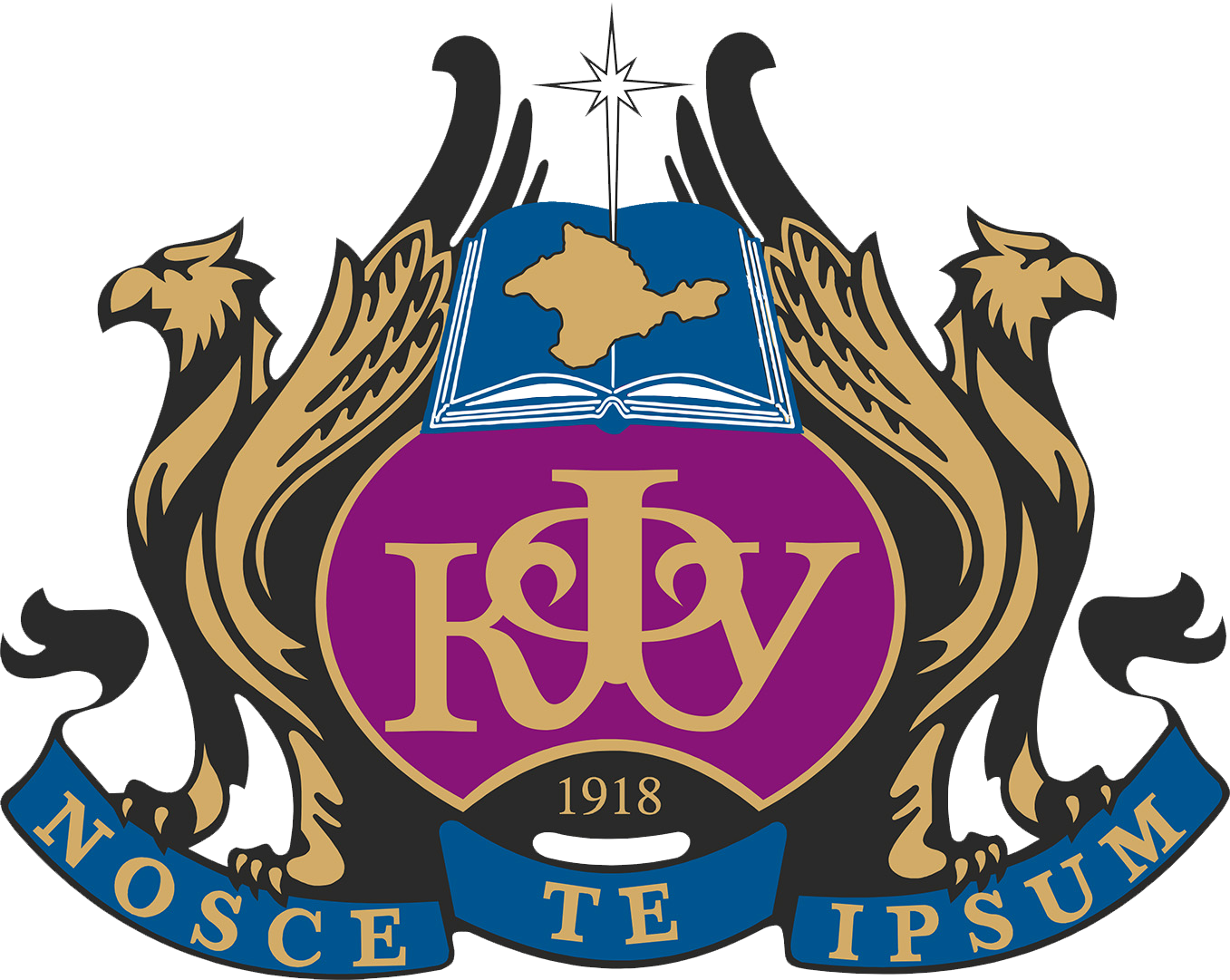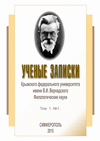The article provides a comparative study of German and English phraseological units with a zoonymic or phytonymic component representing a healthy person. The analysis is given according to the following two types of cultural codes: 1) zoonymic and 2) phytomorphic. Consideration of comparative phraseological units containing zoonyms and phytonyms in the context of culture allows us to determine the general and the specific in the imaginative thinking of the Germans and the British about health, to explain the peculiarity of their functioning. Studying phraseological units within the framework of the linguistic and cultural paradigm is considered relevant since the zoomorphic and phytomorphic images underlying the formation of phraseological units are the conductors of culture. They transmit valuable information about the geographical and climatic living conditions of a particular ethnic group that helps to identify ethnocultural stereotypes and standards reflecting the collective view of the most valuable human being that is health. Moreover, the very trope (tropeic) essence of a phraseological unit is born from a combination of cultural codes, which are the structure-forming elements of cultural space and are present in the cognitive base of any linguistic and cultural community.
phraseology, culture code, zoomorphic image, phytomorphic image, biomorphic code of culture, linguistic and cultural aspect
1. Vaganova E. N., Rogachev V. I. Mifopoetika rastitel'nogo koda kul'tury v tradicionnoy kul'ture mordovskogo naroda // Ezhegodnik finno-ugorskih issledovaniy. ‒ 2022. ‒ T. 16. ‒ № 1. ‒ S. 57‒71.
2. Danilov A. S. Semantika drevneislandskogo cvetooboznacheniya grœnn ‘zelenyy’ v pesnyah «Starshey Eddy» // Indoevropeyskoe yazykoznanie i klassicheskaya filologiya. ‒ 2008. ‒ № 12. ‒ S. 128‒138.
3. Zayceva M. V. Den'gi v rastitel'nom kode russkoy lingvokul'tury // Filologiya i kul'tura. ‒ 2021. ‒ № 4 (66). ‒ S. 61‒65.
4. Zamaletdinov R. R., Zamaletdinova G. F. Yazyk – kul'turnyy kod nacii i klyuch k kul'ture vsego chelovechestva // Filologiya i kul'tura. ‒ 2012. ‒ № 2 (28). ‒ S. 49‒53.
5. Zaharova M. A. Realizaciya somaticheskogo, zoomorfnogo i fitomorfnogo kul'turnyh kodov v donskih frazeologizmah, harakterizuyuschih trudovuyu deyatel'nost'
6. Izotova N. N. K voprosu o prochtenii «kul'turnogo koda» v lingvokul'turologii // Kul'tura i civilizaciya. ‒ 2020. ‒ T. 10. ‒ № 4‒1. ‒ S. 5‒11.
7. Karpun M. A. Elementy rastitel'nogo koda, harakterizuyuschie cheloveka, v tradicionnoy kul'ture donskogo kazachestva // Acta Linguistica Petropolitana.
8. Krasnyh V. V. Kody i etalony kul'tury (priglashenie k razgovoru) // Yazyk, soznanie, kommunikaciya. ‒ 2001. ‒ № 19. ‒ S. 5‒21.
9. Kun A. V. Bol'shoy anglo-russkiy frazeologicheskiy slovar' – English-Russian phraseological dictionary: ok. 20000 frazeol. edinic. ‒ 4-e izd., pererab. i dop. ‒ M.: Rus. yaz., 1984. ‒ 944 s.
10. Lihachev D. S. Izbrannoe: Mysli o zhizni, istorii, kul'ture. ‒ M.: Rossiyskiy fond kul'tury, 2006. ‒ 336 s.
11. Luzenina I. N. Nominativnye svoystva leksicheskih edinic, organizuyuschih leksiko-semanticheskoe pole «Fizicheskoe sostoyanie cheloveka»: na materiale russkogo i nemeckogo yazykov: dis.
12. Makovskiy M. M. Bol'shoy etimologicheskiy slovar' sovremennogo nemeckogo yazyka. GroYaes Etymologisches Wcrterbuch des Deutschen. ‒ 2-e izd., ispr. i dop. ‒ M.: Lenand, 2014. ‒ 632 s.
13. Maslova V. A. Homo lingualis v kul'ture: monografiya. ‒ M.: Gnozis, 2007. ‒ 318 c.
14. Maslova V. A. Yazyk skvoz' prizmu zhivotnogo, rastitel'nogo, obonyatel'nogo i drugih kodov
15. Maslova V. A. Arhetip prirody kak model' mirovospriyatiya // Vestnik Rossiyskogo universiteta druzhby narodov. Seriya: Teoriya yazyka. Semiotika. Semantika. ‒ 2013. ‒ № 2. ‒ S. 5‒14.
16. Maslova V. A. Duhovnyy kod s pozicii lingvokul'turologii: edinstvo sakral'nogo i svetskogo // Metafizika. ‒ 2016. ‒ № 4 (22). ‒ S. 78‒97.
17. Nemecko-russkiy frazeologicheskiy slovar' / sost. L. E. Binovich i N. N. Grishin; pod red. d-ra Malige-Klappenbah i K. Agrikola. ‒ 2-e izd., ispr. i dop. ‒ M.: Rus. yaz., 1975. ‒ 656 s.
18. Polnaya enciklopediya simvolov. ‒ M.: AST, 2007. ‒ 515 s.
19. Raevskiy M. V. K etimologii nemeckogo prilagatel'nogo gesund // Etimologiya (Materialy i issledovaniya po indoevropeyskim i drugim yazykam). ‒ M.: Izd-vo Akademii nauk SSSR, 1965.
20. Rogachev V. I., Vaganova E. N., Mingazova L. I. Funkcionirovanie rastitel'nogo koda v tradicionnoy kul'ture narodov Povolzh'ya (na primere fol'klora mordvy-erzi i mokshi)
21. Sakaeva L. R., Fatkullina F. G., Yalalova R. R. Strukturno-grammaticheskaya harakteristika substantivnyh i ad'ektivnyh frazeologicheskih edinic, harakterizuyuschih bolezn'-zdorov'e
22. Samylina E. V. Strukturnye i semanticheskie svoystva processual'nyh frazeologizmov so znacheniem fizicheskoy deyatel'nosti i fizicheskogo sostoyaniya v russkom i angliyskom yazykah: dis. .
23. Tokarev G. V. K probleme sootnosheniya russkih kvazisimvolov s kodom kul'tury // Filologos. ‒ 2020. ‒ № 2 (45). ‒ S. 79‒84.
24. Tresidder D. Slovar' simvolov; per. s angl. S. Pal'ko. ‒ M.: FAIR-Press, 2001. ‒ 448 s.
25. Usacheva A. N. Lingvisticheskie parametry koncepta «Sostoyanie zdorov'ya» v sovremennom angliyskom yazyke: dis. ... kand. filol. nauk: 10.02.04. ‒ Volgograd, 2002. ‒ 167 s.
26. Fomina Z. E., Guschina A. I. Etnokul'turnaya specifika metaforicheskih obrazov «dereva» (Baum) v sovremennoy nemeckoy hudozhestvennoy kartine mira
27. Chikalo N. A. Arhaicheskie predstavleniya cheloveka o zdorov'e (na materiale drevnegermanskih yazykov) // Vestnik Moskovskogo gosudarstvennogo oblastnogo universiteta. Seriya: Lingvistika.
28. Yazyk kak kul'turnyy kod nacii. ‒ Sankt-Peterburg: Izd-vo Sankt-Peterburgskogo gos. un-ta, 2014. ‒ 263 s.
29. Der Bdr – Geschichte eines gest'rzten Kcnigs – KRAUTJUNKER. ‒ Rezhim dostupa: https://krautjunker.com/2019/03/11/der-bar-geschichte-eines-gesturzten-konigs/. ‒ (Data obrascheniya: 31.04.2024).
30. Cambridge International Dictionary of Idioms: Umair Mirza. ‒ Rezhim dostupa: https://archive.org/details/cambridge-international-dictionary-of-idioms. ‒ (Data obrascheniya: 31.04.2024).
31. Cambridge English Dictionary. ‒ Rezhim dostupa: https://dictionary.cambridge.org. ‒ (Data obrascheniya: 31.04.2024).
32. Collins English Dictionary. ‒ Rezhim dostupa: https://www.collinsdictionary.com/dictionary/english. ‒ (Data obrascheniya: 31.04.2024).
33. Deutsches Wcrterbuch / German Dictionary. ‒ Rezhim dostupa: http://de.thefreedictionary.com. ‒ (Data obrascheniya: 31.04.2024).
34. Digitales Wcrterbuch der deutschen Sprache. ‒ Rezhim dostupa: https://www.dwds.de. ‒ (Data obrascheniya: 31.04.2024).
35. Duden ‒ Redewendungen und sprichwcrtliche Redensarten. ‒ B. 11. ‒ Mannheim, Leipzig, Wien, Z'rich: Dudenverlag, 1992. ‒ 864 S.
36. Idioms and phrases. ‒ Rezhim dostupa: https://idioms.thefreedictionary.com/. ‒ (Data obrascheniya: 31.04.2024).
37. Lexikon f'r Redewendungen, Redensarten, deutsche Sprichwcrter und Umgangssprache. ‒ Rezhim dostupa: http://www.redensarten-index.de. ‒ (Data obrascheniya: 31.04.2024).
38. Merriam-Webster: America’s Most Trusted Dictionary. ‒ Rezhim dostupa: https://www.merriam-webster.com/dictionary. ‒ (Data obrascheniya: 31.04.2024).
39. Mythologie und Brauchtum ‒ Georg-August-Universitdt Gcttingen. ‒ Rezhim dostupa: https://www.uni-goettingen.de/de/mythologie+und+brauchtum/16703.html. ‒ (Data obrascheniya: 31.04.2024).
40. Niedersachsenlied. ‒ Rezhim dostupa: https://www.youtube.com/watch?v=-gDeYVb4aDM. ‒ (Data obrascheniya: 31.04.2024).
41. Online Synonym-Wcrterbuch. ‒ Rezhim dostupa: https://synonyme.woxikon.de/synonyme. ‒ (Data obrascheniya: 31.04.2024).
42. Warum ist die Eiche in Deutschland ein Nationalsymbol? Available from: https://www.fluter.de/deutsche-eiche-nationalsymbol. ‒ (Data obrascheniya: 31.04.2024).
43. Werte-Lexikon. ‒ Rezhim dostupa: https://www.values-academy.de/gesundheit/. ‒ (Data obrascheniya: 31.04.2024).
44. Yalalova R. P. Semanticheskiy analiz frazeologicheskih edinic, harakterizuyuschih «zdorov'e» v angliyskom, nemeckom i russkom yazykah





